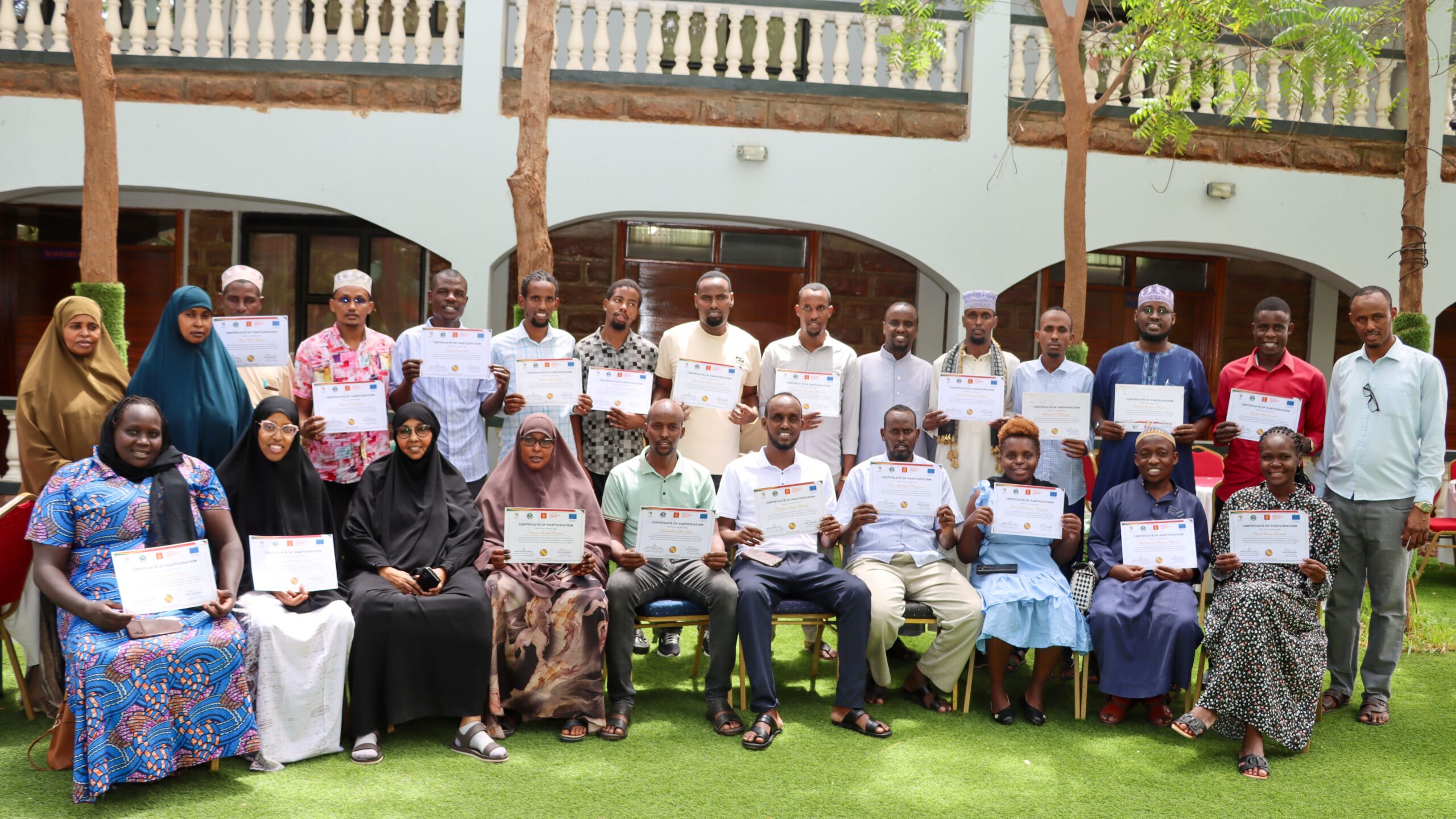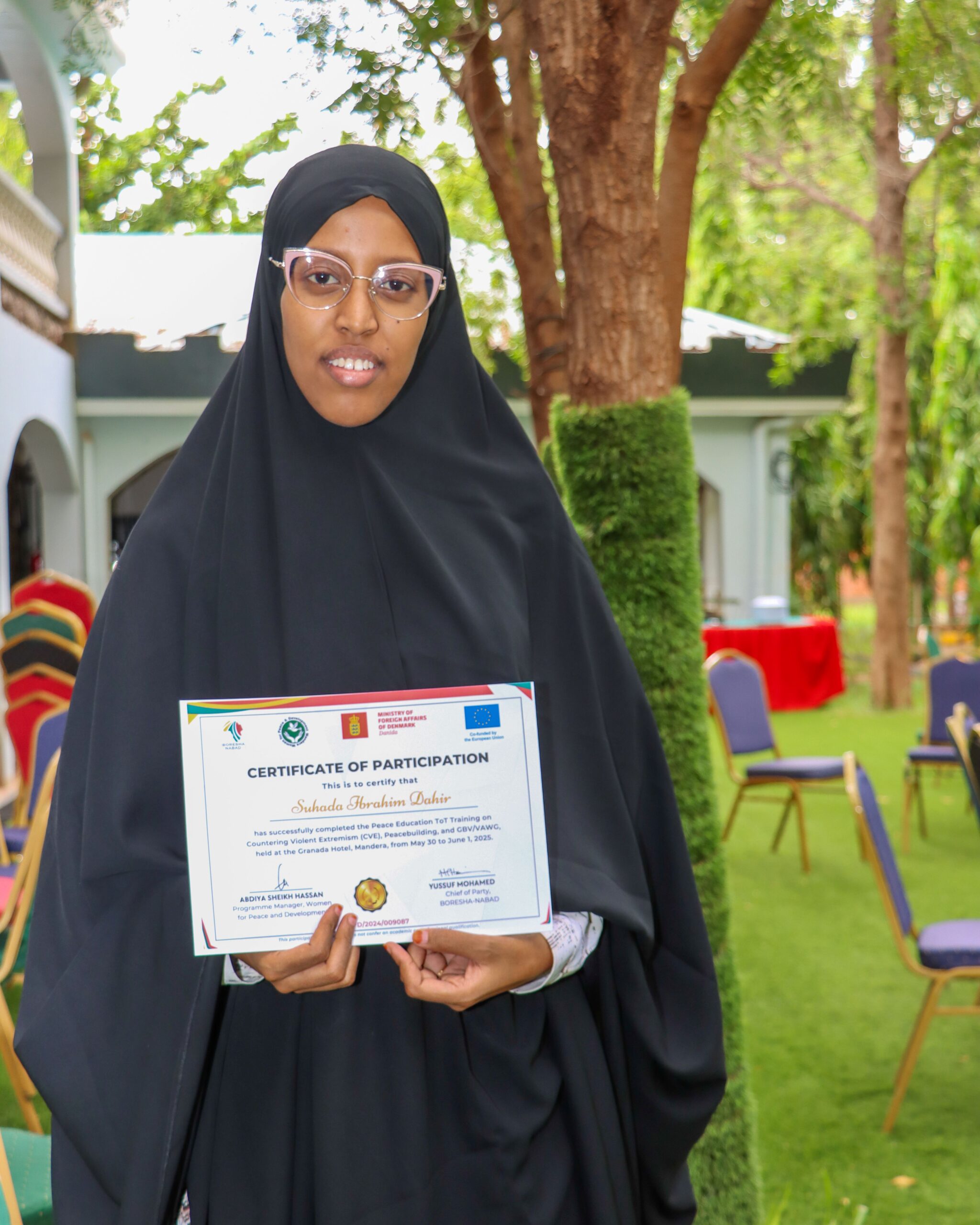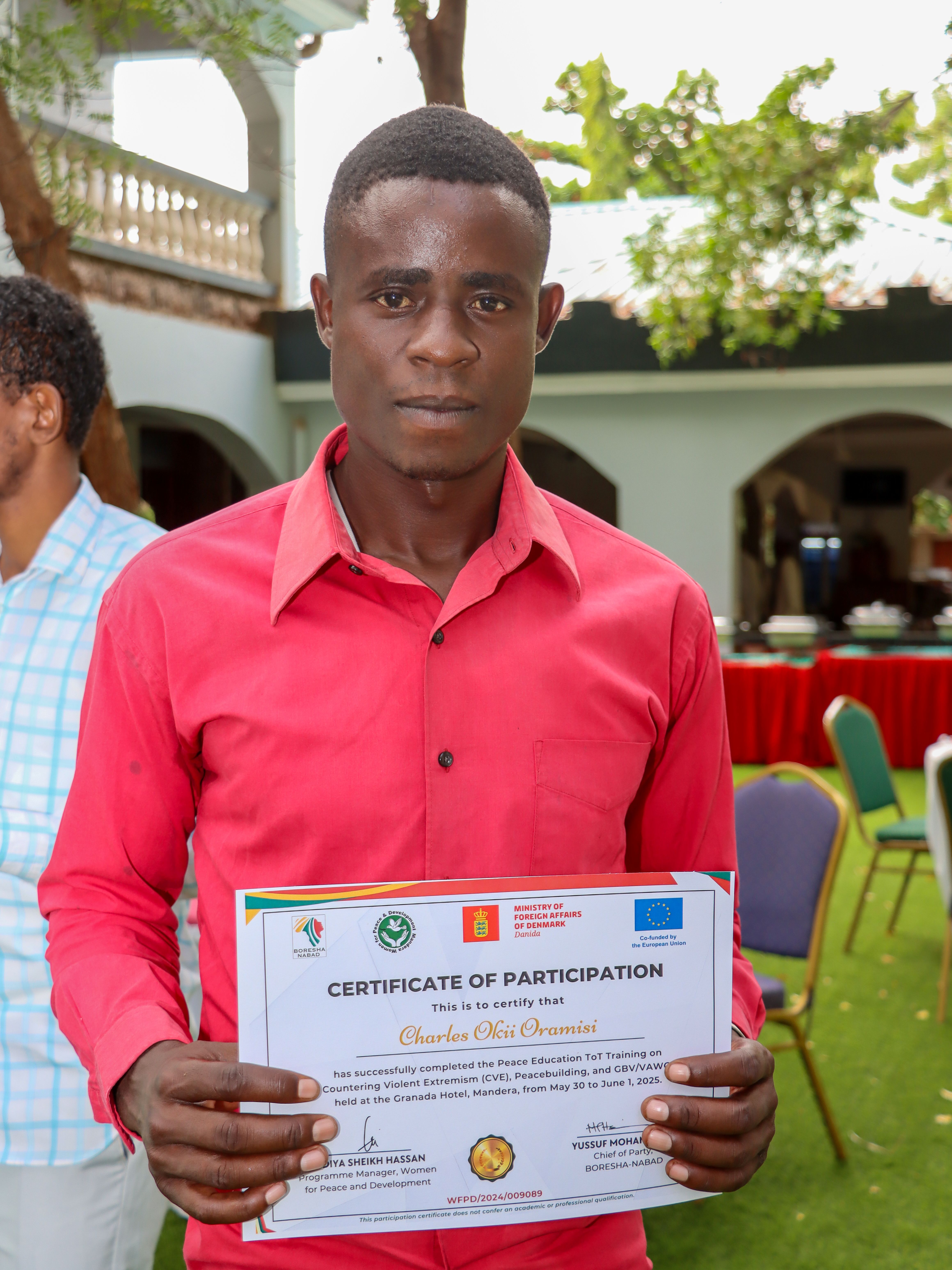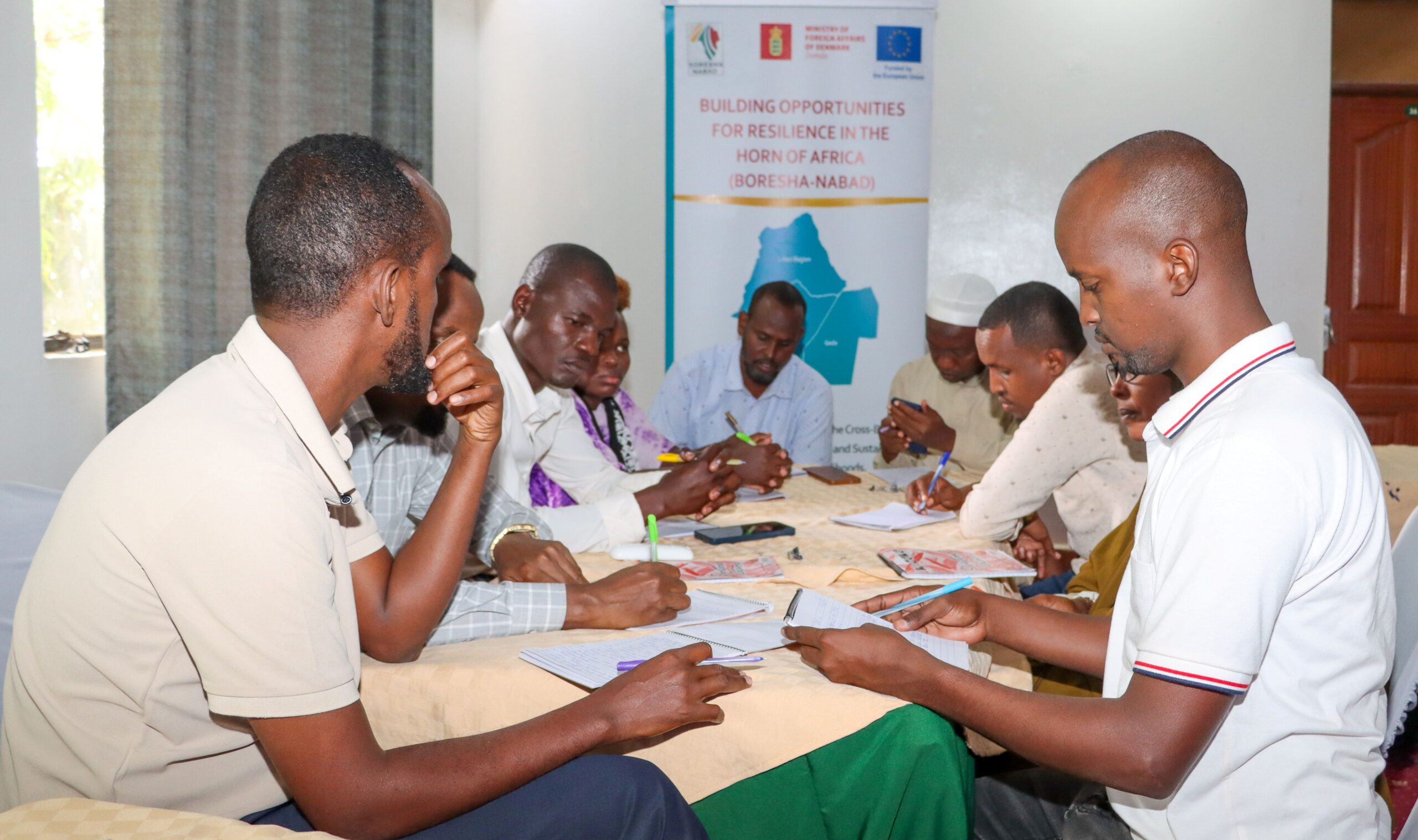
To enhance the capacity of educators in preventing, identifying, and responding to incidents of Sexual and Gender-Based Violence (SGBV), Violence Against Women and Girls (VAWG), and Preventing/Countering Violent Extremism (P/CVE) in learning institutions, the Building Opportunities for Resilience in the Horn of Africa (BORESHA-NABAD) programme concluded a three-day Training of Trainers (ToT) for 20 public school teachers from 30th May to 1st June 2025 at the Granada Hotel, Mandera County.
Organised in collaboration with the Teachers Service Commission – Mandera Branch and facilitated by Mandera Women for Peace and Development (MWFPD), the training aimed to enhance teachers’ skills and knowledge to lead learner-centred peacebuilding and violence prevention within school environments in hotspot areas.
Funded by the European Union with co-funding from Danida, the BORESHA-NABAD programme supported training held in Mandera Town, uniting teachers from public schools in fragile and high-risk sub-counties across Mandera County. This training was crucial in equipping the teachers with the tools necessary to create safe and inclusive classroom environments and to serve as focal points for peace education within their institutions.
🔍 Key thematic areas included:
✅ Understanding and preventing violent extremism (CVE)
✅ Inclusive peacebuilding and dialogue facilitation
✅ School-based GBV/VAWG identification and response mechanisms
✅ Trauma-sensitive and inclusive classroom practices
✅ Mentorship and sustainability of learner-led peace clubs
Through scenario-based discussions, practical group work, and localised examples, the training helped participants to gain a deeper understanding of the emotional, behavioural, and social dynamics affecting learners in conflict-affected environments.
Voices from the Training

“This training helped me understand how to manage classroom dynamics and emotional tension among learners. I now feel more equipped to de-escalate conflict and guide students towards peaceful behaviour,” shared Suadah Dahir, a teacher from DEB Primary and Junior Secondary School.
“Conflict in schools can be silent and internal. I’ve learned how to engage learners through dialogue and help them express themselves. That alone can prevent future incidents,” added Charles Oki, teacher at Kamor Junior School.

From Training to School-Level Action
The trained educators are now positioned to become champions of peace education within their schools. Their responsibilities include leading awareness campaigns among students, mentoring newly formed peace clubs, promoting referral pathways, and facilitating school-level dialogue on violence prevention and conflict resolution.
In Arabia Sub-county, one of the trained learners at Omar Jilaow Primary and Junior School is already at the forefront of championing post-class peace education sessions for learners and is leading the establishment of a new learner-led peace club. The Amani club has already garnered strong interest and participation from students across various grades.

This swift action after the training illustrates how equipping teachers with the appropriate tools and knowledge can spark locally led peacebuilding initiatives within the education system, while simultaneously reinforcing values of the Competency-Based Curriculum (CBC), such as critical thinking and problem-solving.
Advancing Locally Led Prevention Systems
This initiative forms part of BORESHA-NABAD’s broader commitment to strengthening locally driven prevention systems across the Kenya–Ethiopia–Somalia borderlands. By embedding peacebuilding and protection within education systems, the programme helps ensure that schools function not only as learning centres but also as foundations for long-term stability and resilience.
Training in Photos








